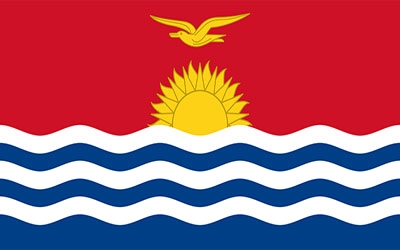The intense campaign in Kiribati’s presidential election has been dogged by allegations of interference by China’s ambassador to the country.
Opposition presidential candidate, Banuera Berina, said China must stop campaigning for his rival, and caretaker Kiribati president, Taneti Maamau.
“China should respect our sovereignty as an independent island nation,” Berina told Islands Business in a telephone interview this week.
“It should not be seen to be supporting and assisting one particular political party in Kiribati.
“It appears that I am competing not against one but two opponents,” added the long time politician and lawyer based in Tarawa, the capital.
Islands Business has sought responses from both the office of caretaker President Maamau and the Chinese Embassy in Tarawa, and although nothing has been sent from the President’s office, the Embassy has rejected the allegations.
“We do not interfere in any other countries’ internal affairs,” said the embassy. “China’s practice is upright and aboveboard.
“Secondly the embassy conducts official exchanges and promotes cooperation with the government of the receiving country.”
The Chinese Embassy confirms that it conducts community and school visits in Tarawa but only to “deepen mutual understanding and friendship.”
Berina however remained defiant that Chinese ambassador to Kiribati, Tang Songgen and his senior Embassy officials have been openly campaigning for President Maamau.
He gave several examples; one was reports that the Chinese Ambassador had been distributing free t-shirts and baseball caps to people on Tarawa.
The other was the offer that caretaker President Maamau’s party, Tobwaan Kiribati Party (TKP) allegedly made to people on Maiana atoll, that the Chinese government was willing to fund the construction of their new maneaba (meeting house) if they convince their two parliamentary representatives to support Maamau’s re-election.
One of the atoll’s previous parliamentary reps was Anote Tong, the predecessor of Maamau.
The administration’s decision to sign aid agreements with China while in caretaker mode was another example provided by Berina.
Berina claims that Chinese’s involvement in the presidential election campaign is so blatant and intense that the upcoming presidential vote is fast turning out to be a referendum on the future of Kiribati-Chinese relations.
“This is not on. China should not be playing any role in our elections. As I see it, because of their involvement in the elections, China is making the upcoming presidential election a referendum on whether Kiribati should recognise China or switch back to Taiwan.
“If they vote for government, then they want Kiribati to remain with China, but if they vote for me, then the people of Kiribati want us to restore relations with Taiwan.
“This is the price China will have to pay for not respecting our sovereignty as an independent island nation.”
The issue of China plays a big role in Kiribati politics, and Maamau’s decision in November last year to withdraw its recognition of Taiwan and to ally itself with mainland China triggered a series of political mishaps.
His party lost its majority in parliament when Berina left the ruling TKP with 12 other government MPs to join the opposition’s Boutokan te Koaua (BTK).
This led to the defeat of President Maamau’s 2020 budget, and the formation of Berina’s Kiribati First Party, or KFP. For the 22 June presidential vote however, Berina is the joint KFP and BTK candidate, the two parties reportedly forming a coalition now know as BKM on 1 May, at the completion of parliamentary elections.
Under Kiribati’s constitution, the party with the largest number of MPs in parliament does not necessarily form government. It is the voters that directly vote for their President and the onus would be on the elected leader to lure MPs to join him in government.
Writing in May’s Islands Business magazine, retired i-Kiribati scholar Teweiariki Teaero said April’s parliamentary elections saw the ruling TKP with 12 MPs and eight MPs each for BTK and KFP, leaving the remaining 14 new MPs to decide which side of parliament they would align themselves to.
